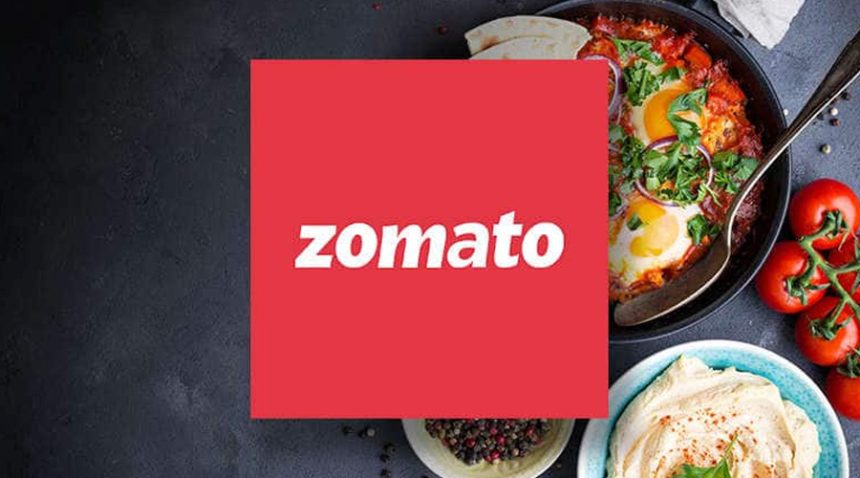Strengthening its balance sheet after acquiring Paytm’s ticketing business for ₹2,014 Cr
Zomato Ltd., one of India’s leading food delivery and restaurant aggregator platforms, has announced a significant fundraising initiative through a ₹8,500 crore Qualified Institutions Placement (QIP). This move is a pivotal step for the company as it looks to strengthen its balance sheet and realign its strategic goals. The QIP comes at a time when Zomato is gearing up for its inclusion in the 30-stock BSE Sensex index, marking a historic milestone for the company.
Key Details of the QIP Offer
The Qualified Institutions Placement (QIP) offer opened with a floor price of ₹265.91 per share, while the offer price stands at ₹252.62 per share, reflecting a slight discount aimed at attracting institutional investors. A total of 33.65 crore shares, equivalent to 3.8% of Zomato’s equity, are being offered under this initiative.
The shareholders approved the QIP proposal on November 23, 2024, after the board’s decision last month to raise capital via this route. This marks a strategic move for Zomato, allowing it to access funds from institutional investors while adhering to regulatory norms.
Regulatory Compliance and Discounts
The equity shares issued under the QIP align with the 2018 SEBI regulations and the Companies Act of 2013. Zomato is eligible to offer a 5% discount on the floor price, provided it secures shareholder approval. This provision could make the offer more appealing to institutional investors by providing them with shares at a favorable price point.
Strategic Objectives Behind the QIP
1. Strengthening the Balance Sheet
Zomato’s cash reserves have witnessed a decline of ₹1,726 crore in the last quarter. This reduction in reserves is partly due to the acquisition of Paytm’s entertainment ticketing business for ₹2,014 crore. The QIP proceeds will play a critical role in bolstering Zomato’s financial position, ensuring liquidity for ongoing and future business needs.
2. Enhancing Business Operations
While Zomato has not disclosed detailed plans for utilizing the funds, the capital raised is expected to support its day-to-day operations and help achieve long-term strategic objectives. This could include scaling up its delivery infrastructure, investing in technology, and expanding its market footprint.
3. Positioning for Growth
Zomato’s move to raise funds through a QIP also signals its readiness to capitalize on market opportunities. As the first new-age tech stock to join the BSE Sensex on December 23, 2024, Zomato is poised to attract greater investor interest and enhance its credibility in the market.
Impact on Shareholders and Market Perception
1. Shareholder Value
For existing shareholders, the QIP is a double-edged sword. While it offers Zomato an opportunity to improve its financial stability, the issuance of additional equity could dilute the ownership percentage of current shareholders. However, if the raised funds are utilized effectively, the long-term benefits could outweigh the short-term dilution.
2. Market Sentiment
The announcement of Zomato’s inclusion in the BSE Sensex is a positive development that could improve market sentiment. It reflects the growing recognition of new-age tech companies in traditional indices, paving the way for similar firms to achieve greater market representation.
3. Institutional Investor Confidence
The QIP, targeted at institutional investors, underscores Zomato’s confidence in attracting funding from key market players. The slight discount on the floor price could serve as an incentive, boosting participation and ensuring the success of the offer.
Recent Developments at Zomato
Acquisition of Paytm’s Entertainment Business
Zomato’s acquisition of Paytm’s entertainment ticketing division for ₹2,014 crore was a strategic move to diversify its business and tap into the entertainment sector. This acquisition aligns with Zomato’s vision of creating a comprehensive ecosystem that goes beyond food delivery.
Declining Cash Reserves
The decline in cash reserves highlights the financial strain associated with large-scale acquisitions and operational expenses. This makes the QIP a timely intervention to ensure that Zomato remains financially agile and capable of pursuing growth opportunities.
Entry into the BSE Sensex
Zomato’s upcoming inclusion in the BSE Sensex is a testament to its growing prominence in India’s stock market. It will replace JSW Steel in the index, making it the first new-age tech company to achieve this milestone. This inclusion is expected to increase Zomato’s visibility and attract passive investments from index funds.
The Broader Implications of the QIP
1. For the Tech Industry
Zomato’s QIP sets a precedent for other tech startups in India that are seeking to raise capital through public markets. It showcases the growing acceptance of technology-driven businesses in India’s traditionally conservative financial ecosystem.
2. For Institutional Investors
The QIP provides institutional investors with an opportunity to participate in the growth story of one of India’s leading tech companies. The discount offered on the floor price further sweetens the deal, making it an attractive investment proposition.
3. For the Stock Market
Zomato’s inclusion in the BSE Sensex reflects a shift in the composition of India’s premier stock index, signaling a greater focus on innovation and technology. This could pave the way for other tech-driven companies to join the ranks of India’s most valued firms.
Opportunities and Challenges Ahead
Opportunities
Market Leadership: Zomato’s dominant position in the food delivery sector provides a strong foundation for future growth.
New Revenue Streams: The acquisition of Paytm’s entertainment business could unlock new revenue opportunities and diversify its income sources.
Increased Visibility: Inclusion in the BSE Sensex will enhance Zomato’s visibility among domestic and international investors.
Challenges
Profitability Concerns: Like many tech-driven companies, Zomato faces the challenge of balancing growth with profitability.
Regulatory Hurdles: Compliance with SEBI and other regulatory norms adds complexity to its fundraising efforts.
Competition: Intense competition from other food delivery platforms and e-commerce companies could impact Zomato’s market share.
Zomato’s ₹8,500 crore QIP marks a significant milestone in its growth journey, demonstrating its commitment to strengthening its financial position and achieving strategic objectives. The fundraising initiative, coupled with its inclusion in the BSE Sensex, underscores Zomato’s evolution from a startup to a major player in India’s tech and stock market landscape.
As the first new-age tech stock to join the BSE Sensex, Zomato is setting a benchmark for other tech companies in India. Its ability to effectively utilize the funds raised through the QIP will be crucial in determining its future success. For investors, Zomato’s latest developments offer both opportunities and challenges, making it a company to watch closely in the coming months.






